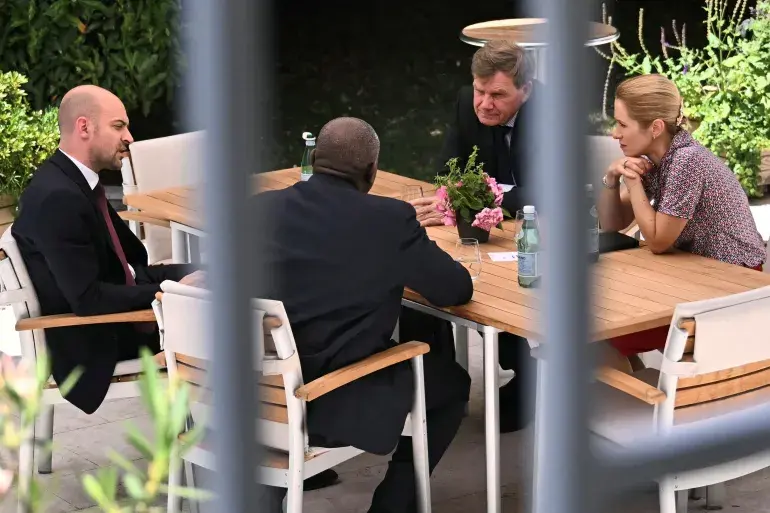Iran-Israel Conflict: Can Divided European Powers Bring Peace?
- TPP

- Jun 22, 2025
- 4 min read

As tensions escalate into open conflict between Iran and Israel, European powers—though economically and diplomatically significant—find themselves divided and limited in their ability to mediate. On Friday, the three largest European nations by population—Germany, France, and the United Kingdom, collectively referred to as the E3—held emergency talks with Iranian Foreign Minister Abbas Araghchi in Geneva, hoping to prevent a full-scale regional war. However, the talks ended without resolution, reflecting Europe’s lack of unity and diminishing leverage in Middle Eastern diplomacy.
US President Donald Trump, who has said he will decide within two weeks whether the US will join military actions against Tehran, criticized the European effort outright. “Iran doesn’t want to speak to Europe. They want to speak to us. Europe is not going to be able to help in this one,” Trump told reporters. His comments underscore Washington’s dominant—and often unilateral—role in Iran-related diplomacy. Notably, Araghchi clarified that Iran did not attend the Geneva talks to negotiate but merely to listen. He reaffirmed, “There is no room for negotiations with the US [either] until the Israeli aggression stops,” as missile and drone exchanges between Iran and Israel intensify.
The E3’s involvement is rooted in the 2015 nuclear agreement known as the Joint Comprehensive Plan of Action (JCPOA). This landmark accord—brokered by the E3, the US, China, Russia, and the UN—committed Iran to limiting its nuclear programme strictly to civilian purposes in exchange for the lifting of international sanctions. However, the US withdrawal from the JCPOA in May 2018 under Trump’s first term effectively dismantled the deal. Iran exited a year later, and European efforts to salvage it failed without American backing.
While trying to mediate diplomatically, the E3 have grown increasingly fractured in their stance on Israel, particularly following Israel’s war on Gaza, which began in October 2023. Germany has remained staunchly pro-Israel, refusing to condemn indiscriminate bombings in Gaza and halting its funding to UNRWA, the UN agency supporting Palestinian refugees, which Israel accuses of links to Hamas. The UK, initially aligned with Israel, shifted slightly after the Labour Party’s electoral victory in 2024, recently joining other nations in sanctioning Israel’s far-right ministers, Itamar Ben-Gvir and Bezalel Smotrich, for inciting violence against Palestinians. France has taken the most critical stance among the E3, being one of the first to call for a Gaza ceasefire and promising to formally recognise the state of Palestine—a move echoed by Spain, Norway, and Ireland in May 2025.
Despite their differences, the E3 remain major global powers. Collectively, they possess a combined GDP of around $11 trillion, and both France and the UK maintain nuclear capabilities and expeditionary forces, including aircraft carriers, capable of operating in the Middle East and North Africa. However, these assets lack the coercive influence required to shift the core national security calculations of Israel or Iran. Their true strength lies in their perceived neutrality and diplomatic legacy, particularly in nuclear negotiations.
However, experts are skeptical about their effectiveness without US alignment. George Tzogopoulos, international relations lecturer at the European Institute in Nice, noted that while the E3 are traditionally more diplomatic than the US, their failure to revive the JCPOA illustrates their limited influence. The Israeli and US governments increasingly reject diplomacy with Iran as viable. Trump has even dismissed his own Director of National Intelligence, Tulsi Gabbard, for testifying that Iran has not resumed nuclear weapons development, contradicting Israel’s unverified claims of an Iranian bomb dash. Kelsey Davenport, Director for Nonproliferation Policy at the Arms Control Association, emphasized, “If Israel has evidence that Iran was dashing for a bomb, it should share it more publicly. Nobody else is confirming that.”
This breakdown in trust between allies further complicates diplomacy. “If there is some coordination between the US and the E3, we might be more optimistic,” said Tzogopoulos, “but for Europe to act autonomously, I wouldn’t bet on their success.”
Angelos Syrigos, professor of international law at Panteion University in Athens, was even more blunt: “The Europeans have very low chances.” He likened the situation to historical peace processes like the Camp David Accords (post-Yom Kippur War) and the Dayton Agreement (after US-led intervention in Yugoslavia), arguing that decisive external force or overwhelming defeat is usually necessary to bring lasting peace. “The only people who can intervene seriously are the Americans,” Syrigos stated.
Recommended Stories
The United Nations Security Council, the international body tasked with maintaining peace, offers no viable solution either. Experts agree it’s paralysed by geopolitical rivalries. The US, China, and Russia—all permanent members with veto power—hold irreconcilable positions. China, heavily invested in Iran’s economy and a key supplier of dual-use materials (civilian and potentially military), has clear stakes in Tehran’s side. Russia, while cautioning the US against striking Iran, is unwilling and unable to directly assist, according to Syrigos: “It hasn’t the power. So, it’s turning a necessity into a voluntary act.”
As the war unfolds unpredictably, Tzogopoulos remarked that “the logic of war will guide diplomatic efforts now. We cannot know how far it will go, or how much damage Iran’s nuclear programme will suffer.” For now, Europe’s divided stance, limited coordination with the US, and lack of military leverage leave the E3 unable to do more than observe and hope for conditions that might one day allow for negotiations.
Click for Daily Quotes:
Stay updated with the latest news by joining our Telegram channel – The PRESS Pad , and follow us on Instagram and X.



Comments